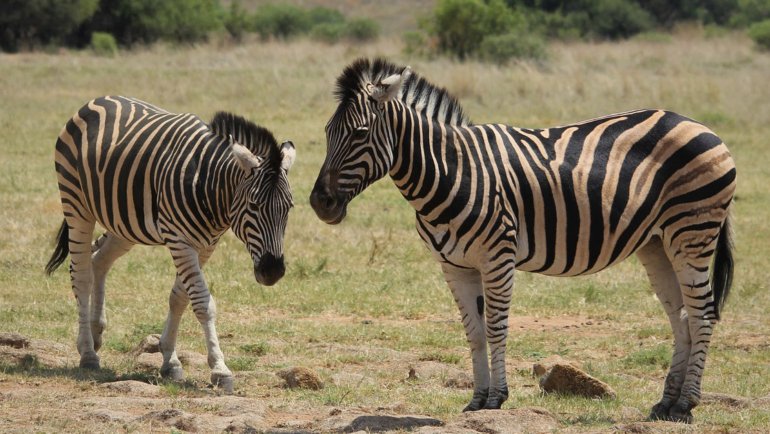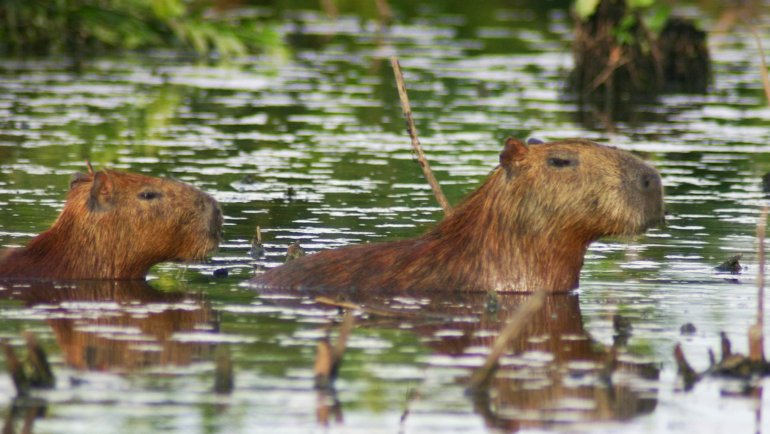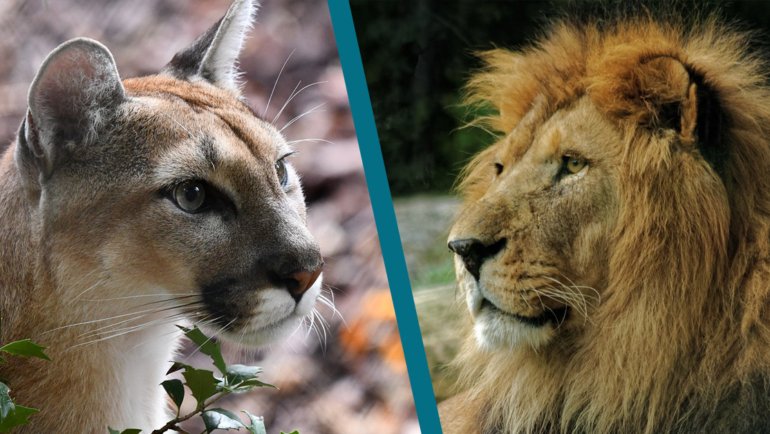Raccoons are known to have a powerful bite due to their sharp teeth and strong jaw muscles. Although these mammals are not aggressive towards people, several instances may force them to react negatively, such as biting or scratching their perceived threat, including humans.
Therefore, it’s essential to know the specific factors that may make these species hostile and what to do if a raccoon bites you.
Fortunately, this article will provide readers with valuable information regarding the dangers of a raccoon bite, what to do if you experience such an unfortunate incident, and how to avoid getting bitten by a raccoon.
The Main Risk of a Raccoon Bite: Rabies
Raccoons are one of the most common carriers of rabies in North America, and they can easily transmit the virus to humans through a bite or scratch.
What is Rabies?
Rabies is a viral disease that affects the central nervous system of mammals, including humans. It is caused by a virus from the Rhabdoviridae family, which is mainly transmitted to humans through the bite of an infected animal, such as raccoons, dogs, bats, and foxes.
Once the virus enters the body, it travels to the brain and causes inflammation, leading to symptoms such as fever, headache, muscle weakness, and seizures. As the disease progresses, it can cause agitation, confusion, and hallucinations, ultimately leading to coma and death.
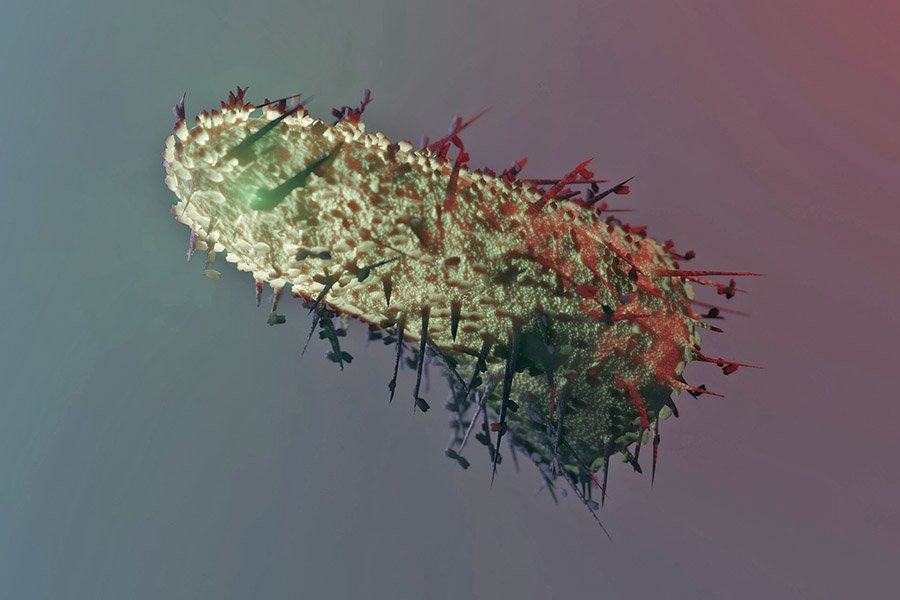
Do All Raccoons Have Rabies?
No! Not all raccoons have rabies. Although they’re commonly associated with rabies, only a small percentage carry the virus.
However, if you encounter a raccoon, it’s generally best to avoid close contact with it and seek help from a wildlife professional or veterinarian.
How To Tell if a Raccoon Has Rabies? – Raccoon Rabies Symptoms
- Unusual Behavior: Raccoons with rabies often exhibit unusual behavior, such as aggressive or disoriented behavior. They may stagger, stumble, or even appear paralyzed.
- Foaming at the Mouth: Infected raccoons may also have excessive salivation or foaming at the mouth.
- Erratic Movement: Rabid raccoons may move in a jerky, uncoordinated manner as if they are having seizures.
- Strange Vocalizations: They may also make strange sounds, such as whining, growling, or screeching.
What Other Diseases Or Parasites Can Raccoons Transmit?
Below are five other diseases raccoons can transmit to humans.
- Leptospirosis: This bacterial infection can be transmitted to humans through contact with infected raccoon urine or bodily fluids. Symptoms include fever, headache, muscle pain, and kidney and liver damage.
- Roundworm: Raccoons can carry roundworms in their intestines, which can be transmitted to humans through contact with infected feces. It can cause serious health problems, including blindness.
- Salmonella: Raccoons can carry salmonella bacteria in their feces, which can cause gastrointestinal illness in humans.
- Giardia: It is a parasite that can be transmitted to humans through contact with infected raccoon feces. It can cause diarrhea, stomach cramps, and other symptoms.
- Lyme disease: Raccoons can carry the ticks that transmit Lyme disease, which can cause a variety of symptoms, including fever, headache, and fatigue.
Also read: Distemper in Raccoons: What You Need to Know
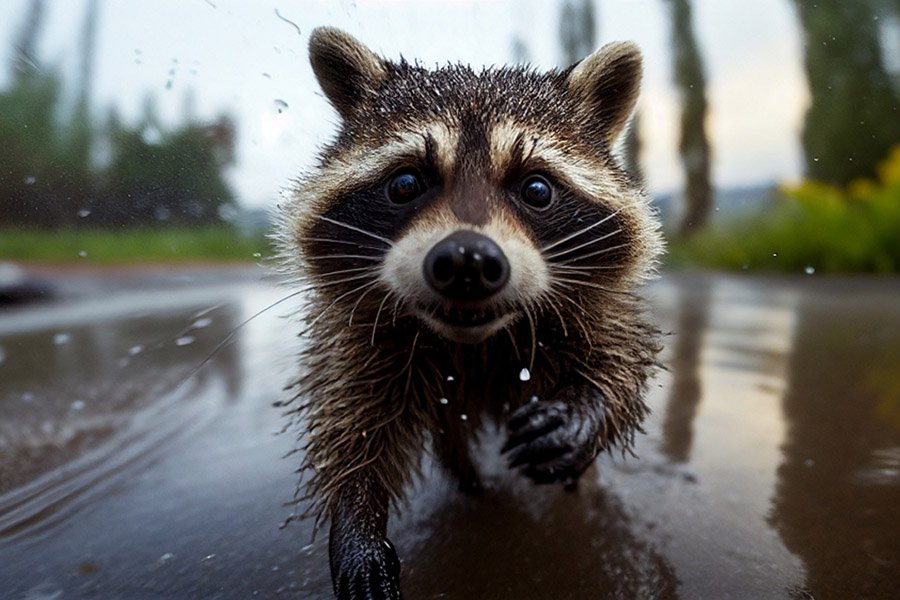
What To Do if a Raccoon Bites You?
If a raccoon bites you, it is crucial to take the following steps:
- Wash the wound with soap and warm water for at least 5 minutes.
- Apply an antiseptic solution such as hydrogen peroxide or iodine to the wound.
- Cover the wound with a sterile bandage.
- Seek medical attention immediately, as raccoon bites can transmit rabies and other serious infections.
- Try to capture or identify the raccoon that bit you, as this information can be helpful for treatment.
- Follow your healthcare provider’s instructions, such as getting a tetanus shot or undergoing post-exposure prophylaxis for rabies.
- Monitor the wound closely for signs of infection, such as redness, swelling, or discharge, and seek medical attention if these symptoms develop.
Why Would a Raccoon Attack/Bite You?
Raccoons are generally not aggressive animals and will typically avoid humans. However, in some cases, they may feel threatened or provoked and bite or attack in self-defense.
Other reasons why a raccoon may attack or bite a human include the following:
- Protecting Its Offspring: Female raccoons are highly protective of their young and may attack any perceived threat, including humans, to defend them.
- Sick: Raccoons can carry a variety of diseases, such as rabies, that can affect their behavior and make them more aggressive to the extent of attacking people.
- Food-related aggression: Raccoons are opportunistic feeders and may become aggressive if they feel you are an obstacle/threat to their food source.
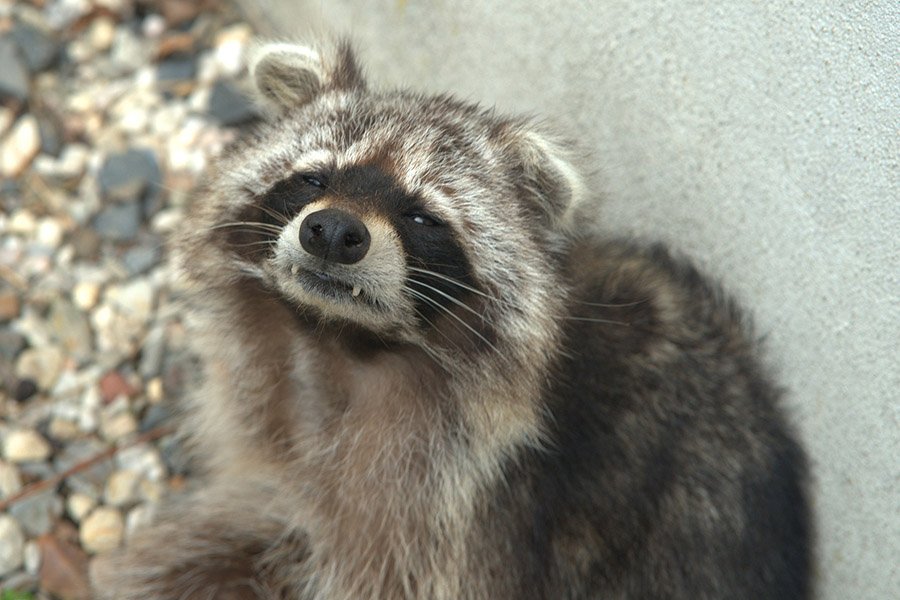
How To Avoid Getting Bitten?
- Keep your distance: Since raccoons are wild animals and can be unpredictable, it’s essential to maintain a safe distance from them.
- Don’t feed them: Feeding raccoons can make them feel comfortable around humans and increase the risk of bites or attacks.
- Stay calm: If you experience a close encounter with a raccoon, remain calm and slowly back away while avoiding making sudden movements.
Frequently Asked Questions
What Does A Raccoon Bite Look Like?
A raccoon bite can look like a tiny puncture wound with surrounding redness and swelling. It may also appear as multiple puncture wounds if the raccoon uses its teeth and claws to attack.
The size of the bite can vary depending on the size of the raccoon’s teeth and the severity of the bite. Raccoon bites can accompany other symptoms such as pain, itching, and infection.
Can A Raccoon Kill You?
Although raccoons are typically not aggressive towards humans and cannot directly kill them, it’s vital to note that a sick raccoon can indirectly kill someone if they bite or scratch them and the person doesn’t seek medical help on time.
Why Are Raccoon Bites Bad For Kids?
Raccoon bites are extremely dangerous to children because they can infect them with one or some of the previously mentioned diseases transmitted by the animal.
Unlike adults, who have a higher chance of recovering and surviving from such infections, children have a weaker immune system, making them more vulnerable to succumbing to such diseases.
Therefore, it’s essential to seek medical attention immediately if a child is bitten by a raccoon in order to prevent the spread of infection and ensure proper treatment.
Are Raccoon Scratches Dangerous? (Can You Get Rabies?)
Raccoon scratches can be dangerous as they can transmit diseases such as rabies and tetanus. Therefore, any scratch from a raccoon should be considered potentially dangerous, even if it doesn’t seem severe.
How Long Can A Raccoon Live With Rabies?
Typically, a rabid raccoon dies 1–3 days after contracting the disease.
How Does A Raccoon Get Rabies?
Raccoons can get rabies through exposure to an infected animal’s saliva or nervous tissue (such as bats, skunks, or other raccoons), typically through a bite or scratch.
What To Do If Your Dog Gets Bitten By A Raccoon?
Call a veterinarian immediately for medical help and quarantine the bitten dog to protect other pets/animals and humans from potential rabies transmission.
During the quarantine period, the veterinary will monitor the dog for signs of various diseases like rabies in order to administer the appropriate medical service. This period can vary depending on state or local regulations, but it typically lasts 10 to 14 days.
Final Thoughts
It is important to note that raccoons are wild animals and should be treated with caution. Therefore, if you encounter this mammal, it’s vital to give it space since its bite/scratch is potentially dangerous. However, if a raccoon bites you or your pet, you must seek medical assistance immediately.

